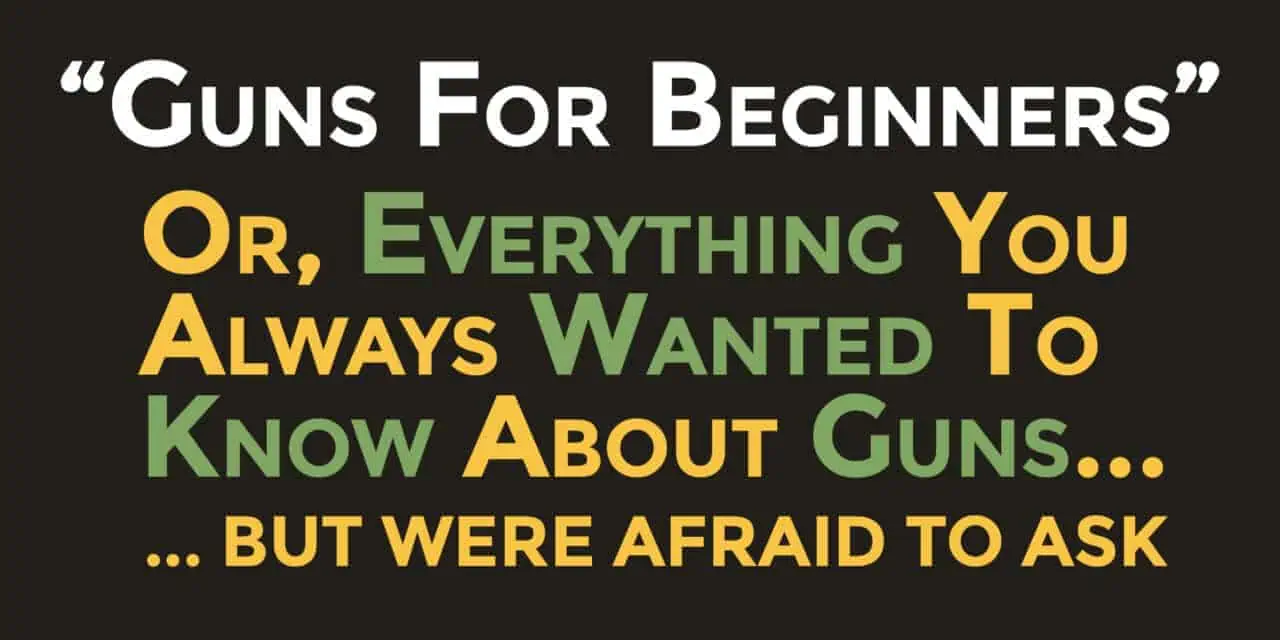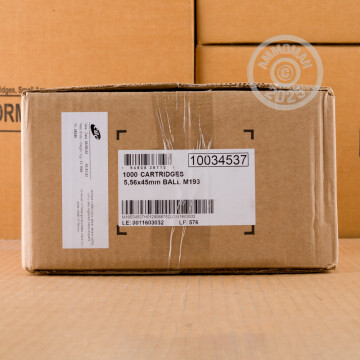Starting From Scratch: Guns For Beginners
The recent boom in gun sales means that there are millions of new gun owners. The experience of these new gun owners can vary widely. Some of them have been shooting for years, and know the rules of gun range etiquette and how to bring a gun to the range. Others are complete newcomers. For them, even simple tasks such as loading rounds into a magazine can be a confusing and difficult task. This is why we’re going to do a series of posts over the next few weeks that we call “Guns for beginners.” In this series, we’re cover the basic tasks of owning a gun
The idea for this series came from my experience at a concealed carry class I attended recently. Things that I can do with my eyes closed, like holding a gun correctly, were herculean tasks for people who had never touched a gun in their lives. If that describes you, let’s both learn something together. If you’re an experienced gun owner, this series will be a great resource for all the new gun owners in your life.
What To Expect From Owning A Gun
Any discussion about guns for beginners should start with what guns can and can’t do. Guns in proper working condition do not “go off by themselves.” You’re not afraid that an idling car would suddenly shift itself into drive and run over you, and you shouldn’t be afraid of guns, either. There are some basic rules of gun safety, and if you follow those every time you are around a gun, you’d do just fine.
Guns are also not magical talismans of self protection. Owning a gun makes you “feel safe” in the same way that owning an electric guitar makes you feel like a rock star. Knowing how to play a guitar well, and being able to play well in a high stress situation like a concert hall full of people is what makes you a rock star. A gun, much like a guitar, is only as good as the person who uses it. Want to be a rock star? Start practicing the guitar. Want to stay safe in an unsafe world? Start practicing and training with your gun.
So far, I’ve used the word “Gun” to describe pretty much everything with a barrel that uses ammo and goes “Bang!” Let’s pause for a moment and talk about the different kinds of guns out there and what they do.
Guns For Beginners: Pistols
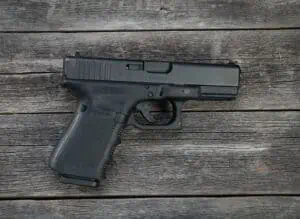 Pistols are some of the most popular guns today. They are small and easy to carry, which makes them terrific for self defense. However, that small size means that they fire lower-powered rounds and have shorter barrels. This 1-2 punch means that a pistol is good out to 25 yards, 50 yards if you practice regularly and are a good shot.
Pistols are some of the most popular guns today. They are small and easy to carry, which makes them terrific for self defense. However, that small size means that they fire lower-powered rounds and have shorter barrels. This 1-2 punch means that a pistol is good out to 25 yards, 50 yards if you practice regularly and are a good shot.
There are, in general, there are two kinds of pistols. Semi-automatic pistols store their ammunition in a magazine which feeds rounds one at a time into the gun. Revolvers have a spinning cylinder which holds the ammo and queues it up for the next shot. Both can serve you well, and we’ll go into more detail about the differences between the two in a later post.
Guns For Beginners: Rifles And Shotguns
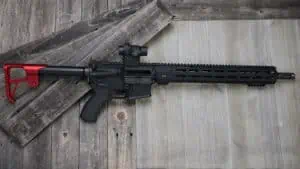 Rifles are another very common type of gun. These are larger, more powerful guns which can hit targets out to distances far beyond what a pistol can reach. They are a bit hard (okay, REALLY hard) to carry around everyday, though, but they are an excellent option for home defense and a favorite for hunters as well. We’ll talk more about them, as well as those oh-so-scary “assault rifles” in another post.
Rifles are another very common type of gun. These are larger, more powerful guns which can hit targets out to distances far beyond what a pistol can reach. They are a bit hard (okay, REALLY hard) to carry around everyday, though, but they are an excellent option for home defense and a favorite for hunters as well. We’ll talk more about them, as well as those oh-so-scary “assault rifles” in another post.
Shotguns are a different breed. They tend to have longer barrels like a rifle, but those barrels are smooth inside. This, in turn, means they have shorter range than a rifle. We’ll get into the whys and wherefores on this later, along with the differences in ammunition between shotgun ammo and rifle and pistol ammunition.
Ammunition For Beginners
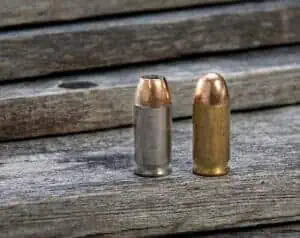 Speaking of ammunition, let’s go into what it is and what it does. Ammunition is there to poke a hole the target, ideally where you are aiming your gun. Nothing more, nothing less. In general, you want jacketed hollow point (JHP) ammunition for when the target is something that is living and breathing, such as hunting or a self-defense situation. Hollow point ammo costs more to make and therefore costs more to buy. However, it expands inside the target, dumping its energy inside what it hit. This energy dump disrupts the internal workings of the body, and that has a tendency to stop the target in its tracks.
Speaking of ammunition, let’s go into what it is and what it does. Ammunition is there to poke a hole the target, ideally where you are aiming your gun. Nothing more, nothing less. In general, you want jacketed hollow point (JHP) ammunition for when the target is something that is living and breathing, such as hunting or a self-defense situation. Hollow point ammo costs more to make and therefore costs more to buy. However, it expands inside the target, dumping its energy inside what it hit. This energy dump disrupts the internal workings of the body, and that has a tendency to stop the target in its tracks.
All that is great, but what if all you’re shooting at is a piece of paper or a tin can? That’s where full metal jacketed (FMJ) ammunition comes in handy. It costs less than JHP ammunition, making it a much more desirable choice for target shooting, practice, training and similar functions. However (with a few exceptions), FMJ ammo has a tendency to punch holes in a target rather slow down and do damage. Use FMJ for practice and plinking, and JHP for when it really matters.
Beginner’s Knowledge: How To Buy A Gun
Now that we know we know a little bit (a very little bit) about guns and the ammunition they use, let’s talk about how to buy a gun. There are some politicians who would have you believe that it’s easier to buy a new Glock than it is a new book. Last time I checked, I didn’t need to pass a background check at the bookstore in order to pick up a mystery novel. To buy a new gun, however, I need to pass a background check to see if I’m a felon or some other type of criminal. The whys and wherefores of who does that check and what other procedures are needed like training can vary from state to state, so we’ll move on to other things.
Let’s say you’ve jumped through the necessary hoops and now own a gun. What’s next? Well, if you haven’t taken a moment to learn and memorize the four rules of gun safety, do so now. If your state requires you store your gun in a locked container when not in use, get a container and lock it. I also recommend storing your guns locked up if there are children inside your home. Yes, it may mean you’ll be a second or two slower on the draw, but it also means you guns are safe from prying, inquisitive hands.
Let’s Take A Long Look At Guns For Beginners
Join us over the next few weeks as we go into each of these subjects in more detail. We’ll be looking at different types of guns, choosing ammunition, how to store your gun safely and how to get your gun ready for action. Our goal with this series is to arm you with knowledge as you learn to live the armed (and safe) lifestyle.

